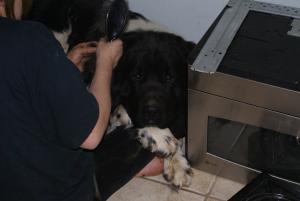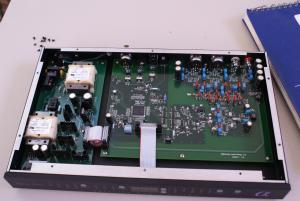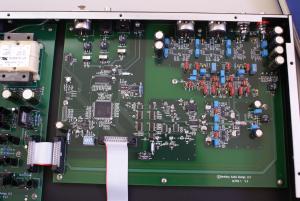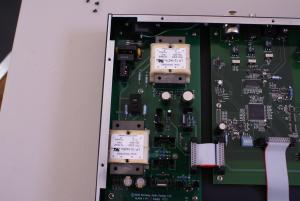
Quadrangulum
Returning Member-
Posts
74 -
Joined
-
Last visited
Content Type
Profiles
Forums
Events
Everything posted by Quadrangulum
-
Here's the link. Amarra Computer Music Player I also just received an email from Sonic Studio about Amarra 1.01 which was just released and the forthcoming Amarra 1.1. I just installed 1.01 but I'm not sure what has changed; there weren't any release notes. 1.1 sounds pretty interesting though.
-
Damn, I should have waited a while. And FYI, I think it still might be possible to get Amarra complete at $995.
-
Here's my graph
-
Berkeley Audio Design Alpha DAC
Quadrangulum replied to Quadrangulum's topic in Home Source Components
Nope. It just needs to be plugged into the Mac. -
Berkeley Audio Design Alpha DAC
Quadrangulum replied to Quadrangulum's topic in Home Source Components
If you can't get one locally, I'm willing to volunteer my unit for the meet. I won't be able to attend unfortunately but I'd love to read those comparisons. -
Great thread. Dogs are simply the best. These are pictures of my Newfoundland and my Pekingese, both rescued from a local shelter.
-
New Woo Audio Electrostatic Headphone Amp!
Quadrangulum replied to Voltron's topic in Headphone Amplification
It's now available for preorder. WES Electrostatic Headphone Amplifier It looks like the first review is up as well. http://www.hemagazine.com/Woo_Audio_WES_Stax_SR-007_Mk2_Review -
Whoops. Thanks for the correction.
-
Mine have been sitting in the mailbox, along with a set of bowls, over the past weekend while I was on vacation. I'm glad I got a nifty serial number (101). It's my first Grado ever so my expectations were based entirely on what I read on the internet, that is, forward and aggressive sound. I'm happy to report that it fits that description perfectly. It's not as detailed as the HD800 and it's a comparatively poor imager but it is excellent with certain types of songs and my poorer quality recordings. Right now, I prefer them with the included flats. It's pretty much everything that I was looking for in a second headphone as it brings forth a unique set of qualities.
-
That's a bit disappointing. It doesn't seem like a big upgrade over the P-1 if it can be called an upgrade at all. I guess Luxman America's going to sell it for $3000, more because of where the yen is in relation to the dollar today than because of improvements made to the design. For reference, these are the P-1 mkI specs
-
I'm juggling two TV shows this summer. The West Wing is blow-my-mind awesome. Star Trek Voyager isn't.
-
I exercised a hour in the morning and now I'm just doing some tidying up at home.
-
Introduction When I put my money down for a Berkeley Alpha DAC, I learned about a piece of software called Amarra that allegedly improved the performance of computer audio playback. I believe this was at CanJam along with the Berkeley Alpha but at the time, I dismissed it as a custom skin for iTunes since I didn't know what it was then. Naturally, I was skeptical since everything I've read online indicates that bit perfect audio is easily possible with freeware on both Mac and PC platforms. I didn't see why or how you could squeeze more performance past this or why it has to be Mac OS X exclusive; a quick survey of the internet reveals that many share similar misgivings. The high cost of Amarra ($1495) plus the lack of any weighty, detailed technical explanation anywhere should give even the most misty eyed snake oil drinker some pause; even Sonic Studios' own website is very spartan (what do they mean by "advanced math" and "integrated gain structure" and why does that mean that "Amarra sounds better"). Even so, individuals that experienced Amarra seemed to be in universal agreement that it made very significant improvements; I have yet to find a single user, that claims first hand experience, that has written an account that poopoos Amarra. It's an understatement to say that unanimity is seldom found on the internet. As a result, I took up Sonic Studios' offer to try it. This is possible by either downloading the demo or by visiting one of the dealers listed on the website. Basically, the experience bowled me over. Using my own equipment and tunes, I managed to identify Amarra correctly ten out of ten times in my first audition. It's hard to argue with those kinds of results so I placed an order for a Lynx card, a Mac Pro, and a copy of the software posthaste. I've had everything in my possession and operational for about a week now; I think I'm ready to present my findings. I'll start with a brief physical description however. Amarra on the Outside The contents of the package are even less impressive than the website. Everything came in a plastic folder, not unlike the ones I use to hold my notes and homework at school. The contents are pretty much the standard fare (software CD, instructions, certificate). One item that's worthy of note is that Amarra uses the iLok security key which is a USB drive-like dongle that must be attached to the computer in order for Amarra to function. It makes it pretty much immune to piracy but the downside is that losing it means losing the license permanently. Installation went predictably smooth. Amarra is basically an add-on for iTunes so you have to use iTunes for your music management if you want to use Amarra. It's very slick and unobtrusive. It turns on when you play lossless files and you have the option to turn it off by clicking a button on the Amarra sidebar; interestingly, when Amarra is on, the iTunes volume slider is set to zero. When you play lossy files, control is handed back to iTunes. Right now, only wav and AIFF files are supported but FLAC (I don't know how they'll manage this) and ALAC will come in the next revision (1.1). Methodology and Findings Even though my first experience was enough to get me to purchase Amarra, it did not erase all of my doubts. First, there was no guarantee that the test was not fixed like some of Monster Cables' HDMI tests at Fry's or Best Buy. Second, since Amarra is installed on top of iTunes, I didn't know if iTunes itself was changed by it, perhaps this altering the sound in a negative way. Third, I wanted to know if Amarra actually represents improved sound quality, thus surpassing a disc transport fed into my DAC, or if it merely addresses some of the inherent limitations of computer audio (I don't see why there would be any in the first place but it seems to be essential to Sonic Studios' claims). I crafted a way to answer the rest of the concerns by performing these tests in the following order: 1. iTunes versus Primare DVD30 hooked up to the Berkeley Alpha 2. iTunes pre-Amarra installation versus iTunes post-Amarra installation with Amarra switched off 3. iTunes with Amarra off versus iTunes with Amarra on 4. iTunes with Amarra on versus Primare DVD30 hooked up to the Berkeley Alpha via AES All the listening was done by ear on my Sennheiser HD800 through the Luxman P-1's balanced input with the volume set at 12 o'clock (note: I use stock power cords and Blue Jeans interconnects which draws the ire of some but this shouldn't compromise my findings). The results are presented in a series of double blind tests, each involving ten songs randomly selected by my assistant (my brother) from a pool that I'm familiar with. I decided to do this as opposed to the same ten songs for all tests since that would cause me to experience fatigue real easily. I did everything in one setting to keep everything fresh in my memory. With these tests, I pressed myself earnestly so I made a selection whenever I felt I could even if it sounded tenuous. "Inconclusive" means I couldn't make a selection. 1. iTunes versus Primare DVD30 hooked up to the Berkeley Alpha: 1 vs 3, 6 inconclusive This seems like a wash. iTunes through the Berkeley sounded as lush as I remember my set up without a computer. When I did make a selection, any changes I perceived were, at best, fleeting. 2. iTunes pre-Amarra installation versus iTunes post-Amarra installation with Amarra switched off: all inconclusive 0 vs 1, 9 inconclusive Words aren't required. 3. iTunes with Amarra off versus iTunes with Amarra on: 1 vs 8, 1 inconclusive While this isn't the slam dunk I had earlier, it's still a very strong endorsement for Amarra. 5 out of the 8 times I preferred Amarra on were live performances. Live performances is where Amarra made the biggest difference. Most of these recordings had a fair amount of noise; the most obvious effect of Amarra is the role it plays in getting rid of this. The sound stage felt wider and more enveloping and the instruments had a greater sense of presence and imaging probably owing to the fact that the notes were now emerging from a cleaner, emptier background. The rest of the 8 were extremely noisy, poor quality tracks such as Surrey with the Fringe on Top from the Oklahoma! Movie Soundtrack; the improvements were most outstanding here. Another noteworthy change was that many of the songs exhibited a greater degree of control and focus; this was most noticeable in We Built this City and Pokemon: Season 1 Theme. In these tracks, guitar riffs which generally have me reaching for the volume knob were tolerable and more accurate. The two tracks that did not favor Amarra both relied heavily on synthesizers. 4. iTunes with Amarra on versus Primare DVD30 hooked up to the Berkeley Alpha via AES: 7 vs 2, 1 inconclusive This is another decisive test. What I said in the last paragraph also applies here for the most part. Amarra just soars with live performances, choral works, and large classical pieces; I can detect Amarra within 10 seconds for these tracks. Again, two of the non-Amarra choices were significantly processed, synthesized pieces. The interesting selection here is that I was adamant that John McDermott's And the Band Played Waltzing Matilda sounded more three dimensional and lively on the disc player. I haven't been able to duplicate this feeling since so I don't think it's worth mulling over any further but it's still something I should probably note. Conclusion These tests indicate that Amarra is the real deal. To me, it made as much a difference as upgrading my amplifier or my DAC. This isn't some audiophile tomfoolery that requires better genetics to hear. That doesn't leave me satisfied however since I still don't know what it's doing. I hope we can uncover a bit of how Amarra works. It's often been asked if Amarra is merely an expensive equalizer setting that tampers with the data. Sonic Studios' own website lists "Advanced software based Sonic Equalization" as a feature so I guess there could be some truth to this but I think that's a gross simplification. When I turn the equalizer on in iTunes for HDCD tracks, the HDCD light on my DAC goes out. When Amarra is on, the light stays on so there doesn't appear to be any tampering going on. At any rate, Amarra was a really pleasant surprise for me. I thought I had hit the zenith of diminishing returns. For me, the contributions promised by the assortment of audiophile gizmos is almost always incremental so I am being sincere when I say that Amarra is anything but. If you want to buy Amarra There's no reason to not try this out so go do that first. If you think you should buy it, there is an introductory deal that shaves five hundred dollars off the cost of the software but several dealers said that it expired June 1. However, I still managed to get it two weeks ago. You can PM for the details.
-
How disappointing. I'll keep my order anyways I guess.
-
Happy birthday!
-
Seriously? That stinks. I wish they just stuck with the first engraver. The ones at CanJam looked very nice.
-
Berkeley Audio Design Alpha DAC
Quadrangulum replied to Quadrangulum's topic in Home Source Components
-
Happy birthday!
-
I bought a bunch of paintings and a desk for my new room.
-
This is my new favorite Chopin recording.
-
You probably have a recording of The Four Seasons already but my reference rendition is the one by Ozawa, Silverstein, and the Boston Symphony Orchestra. It's nothing special in terms of sound quality however.
-
The Starker performance of Bach Cello Sonatas that you have on your list already is, in my opinion, the best classical performance ever recorded. Make sure you get the SACD version even if you can't play SACDs (it's a hybrid disc so you're covered either way); I heard there are some issues with the CD version. For the Haydn string quartets, I recommend any of the Quatuor Mosaiques recordings.





